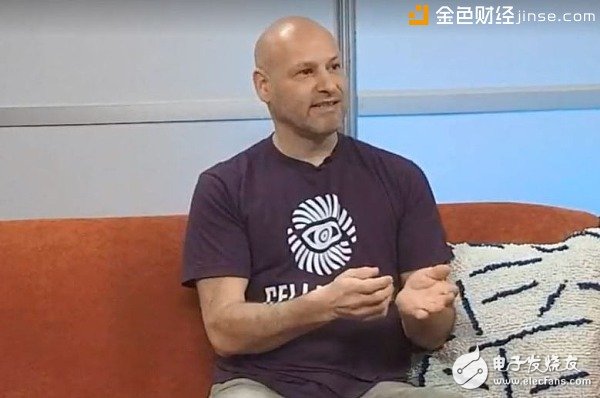As we continue to move toward decentralized cyberspace for cryptocurrency governance, the way we use the Internet will change forever, not the enterprise. The mysterious cloud, including the blockchain, is slowly disappearing, and people are beginning to see the benefits of token transactions like Bitcoin and Ethereum. Entrepreneur and Ethereum co-founder Joseph Lubin said that he is here today. SXSW delivered a speech. “This is a new way to build, deliver and use applications,†he explained. "So, not a client-server architecture, you have a company like Google or Facebook, it has a lot of servers, we interact with them as a counterparty. This new application example has all the different node networks and they are applications. The back end, so no one can control it, and you can build these platforms without anyone over-monetizing." To understand this, let us take you back to 2009, and Satoshi Nakamoto created Bitcoin. When he created a new form of currency, he actually invented three things: the blockchain (a new shared database infrastructure), the first application on the blockchain (including the cryptocurrency bitcoin) Currency system) and implied economics (basically the first application is combined with the blockchain and user-shared resources are enabled). In 2012, people in this field should build applications beyond the ones created for money. Enter Ethereum, or, as Rubin said, "Web 3.0." The entrepreneur helped create a platform that can build and share multiple applications. One of them is self-sovereign identity, a concept that allows users to control encrypted personal data. This is a huge attraction for consumers, many of whom have become victims of third-party fraud. "Now on the Internet, I will argue that identity has been broken," Rubin said. "We're spraying our identity around the network, it's stored on corporate servers, and monetized by the company, and these organizations often don't protect some aspects of your identity very well." So how does Ethereum change the industry today? Well, its new platform, Ujo, has changed the world of music under our nose. You may have never heard of it, but it has been welcomed by countless artists, including Imogen Heap. Ujo is a rights management application. Artists can upload their personal identity (or band identity), share their content, and attach a usage policy in the form of a legally mandated hybrid blockchain agreement instead of signing a physical paper. This basically makes the lawyers in the music industry redundant. “Artists can sell licenses for public performances to works, and consumers can come to pay the artist’s real-time fees and distribute funds in real time,†he explained. “Unlike the traditional music business, many people have a law degree, act as an intermediary and extract a lot of value from the ecosystem. This new blockchain architecture allows suppliers to have less direct access to their consumer fan base. Mediation." In short, you and I don't currently use blockchain-based applications because they don't look sexy. The community is working to make these apps look similar to the ones we use today. In the end, they will seamlessly integrate into the Internet. We will use them without knowing it, and we may never understand how it works. Lubin added: "The depth of the blockchain will never be understood by the public." "We need software engineers to understand the blockchain, and many people begin to understand and live in the blockchain. Consumers will only continue Using the World Wide Web, they only work with the World Wide Web and these applications." Home Appliance Controller,Panel For Water Purifier,Control Panel For Water Purifier,Control Panel Foshan City Jiulong Machine Co., Ltd , https://www.jlthermostat.com

